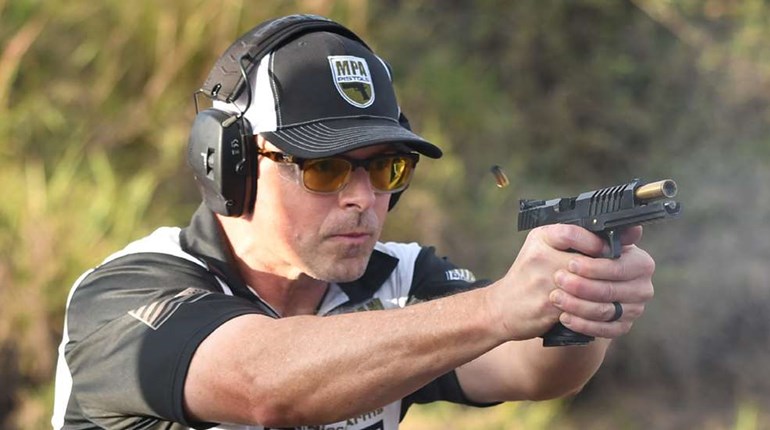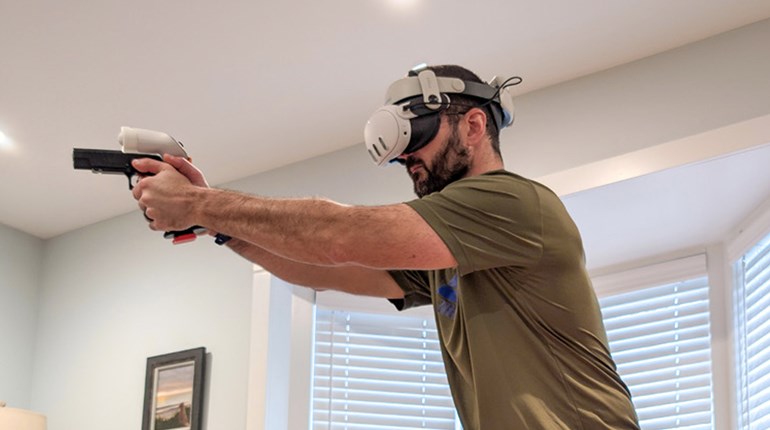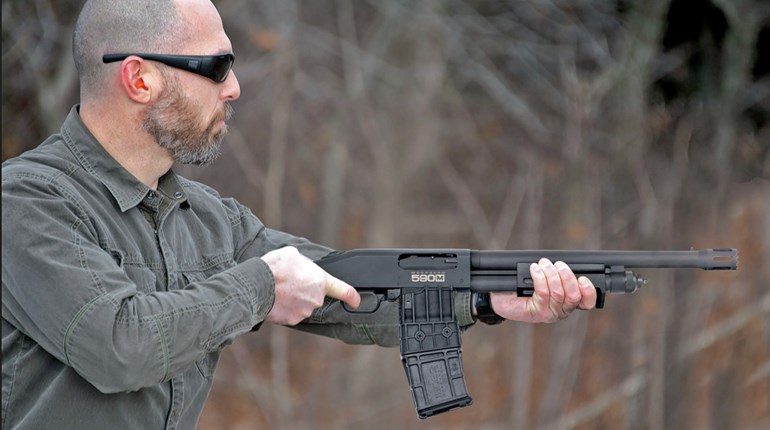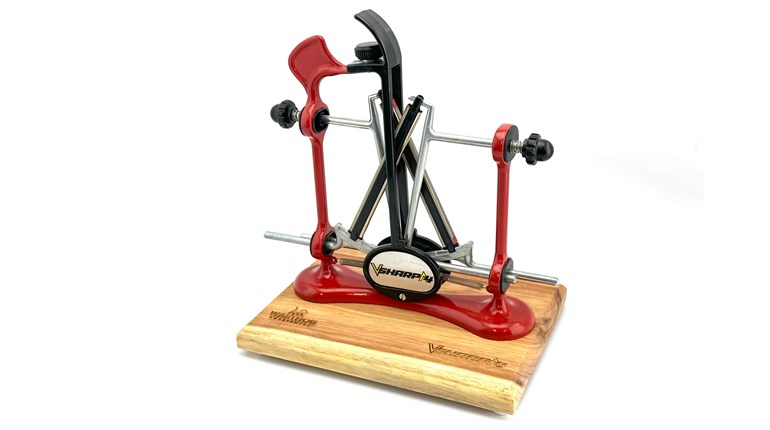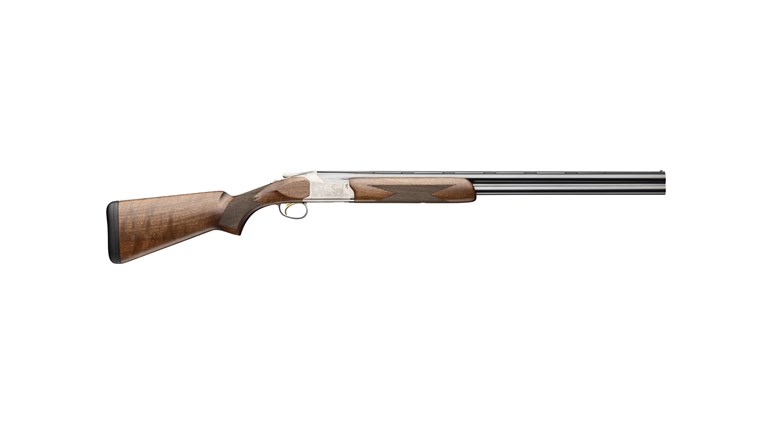
Whether you are a competitive or defensive shooter (or both), shooting skills are hard skills--and all hard skills are perishable. Like speaking a second language or playing a musical instrument, if you don't use them, you lose them. What are some tricks of the trade to sustaining your current shooting skill level burning the least amount of time and precious ammo?
Playing the piano, guitar or other instrument may take you months or years to learn how to read music or play by ear. You may even reach a level of proficiency with which you are satisfied. Stop playing for three years and then try and go back to where your mind believes you left off. What is the result? The lower your skill level, the faster it all goes downhill if not practiced over time. The higher your skill level the longer it takes to degrade.
Playing a sport like baseball or basketball requires formal coaching, physical conditioning, multiple repetitions and performance in a competitive environment. Remember playing these sports in high school? Now go out and do the same today. Do you still have a good coach? Are you in the same physical condition? Can you practice with the same amount of time and intensity? When was the last time you performed those skills in a competitive environment?
We’re all very busy and life’s demands regularly change. Each added responsibility takes up valuable time. If we at least have the basics such as discipline and willingness to commit, there are a few tips to sustaining your current shooting skill level burning the least amount of time and ammo. Akin to training when you were in high school, these are: quality coaching, correct repetitions and performance under duress.

Given family and job responsibilities, few of us have the time and or funding to seek professional instruction. The single most affordable and convenient option is to sift online through the endless volume of “experts” sharing their shooting secrets with you. Yes, there are top notch shooting instructors out there who are among the very best, but how can you tell these from those who aren’t quite at that level?
Due diligence. Do your homework. What is their background? Are they national champions or do they have relevant military or government background? We as humans know quality when we see it. You can tell by their gun handling, safety and marksmanship skills if they are worth the time for you to hear what they have to say.
There’s no substitute for hands-on training with a qualified instructor in person at the range with them coaching and diagnosing your shooting skills. You have two options here. If time and finances permit, you can outright hire a professional or attend a formal shooting class.
Yet another option is to find a shooter well above your skill level at your local range. Believe me, they know how much work and dedication it takes to get where they are today. If you ask kindly or know someone who can make an introduction for you don’t ask them for a full day of their time, but it can’t hurt to ask them a specific question or two. Worst case scenario they tell you to go pound sand. However, the answer is always “no” unless you ask. You may be pleasantly surprised to find that most are willing to share their knowledge as they too learned from someone.
Practice makes permanent and if you’re doing it incorrectly (or inefficiently) then you are building training scars. A more effective usage of your time is to be mindful of exactly what you’re doing and how you’re doing it.
When it comes to shooting there’s a simple and correct process and that is to orient the muzzle with the target and press the trigger without disturbing that orientation. Anything other than that is incorrect. A very simple formula, but not easy, especially with a handgun. You can’t do it fast if you can’t do it. First steps are to complete the task.
Rather than burn through very valuable (and still hard to find) ammo, add plenty of dry fire to your routine. All gun handling skills (presentations, mag changes, kinesthetic and visual alignment, etc.,) are non-firing. Your non-firing skills can be developed or maintained without firing a single round. If you’re working on speed reloads then instead of ripping through a box of 50 rounds, get your same 50 reps dry. You can stockpile your correct repetitions either way.

Prepared with quality instruction and correct reps you are now welcome to test your developing or maintained skills.
It’s one thing to be standing at your home range with bluebirds chirping on a beautiful sunny day with no time or other pressure constraints. It’s another to be shooting a qualification to keep your job or to compete against other shooters of equal skill level and equipment.
What are your limitations? How fast can you really shoot without sacrificing accuracy? Only you can answer these performance questions. Train with another shooter who can push you or find a competition. Nothing transfers perishable skills to your subconscious better than those developed under duress.
If you choose to sustain your current shooting skills level expending the least amount of time and ammo, then your three options for good coaching are to seek quality online instruction, ask for input at your own home range from a higher-skilled shooter and or attend formal shooting classes, add a plentiful amount of dry fire to your training routine, and make yourself perform under pressure.










